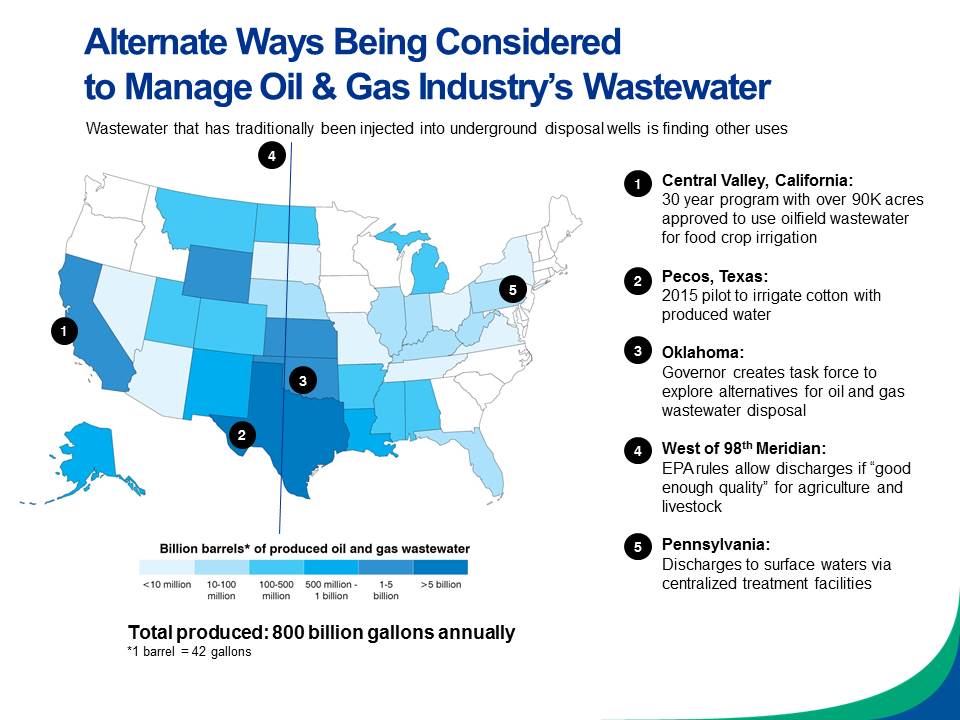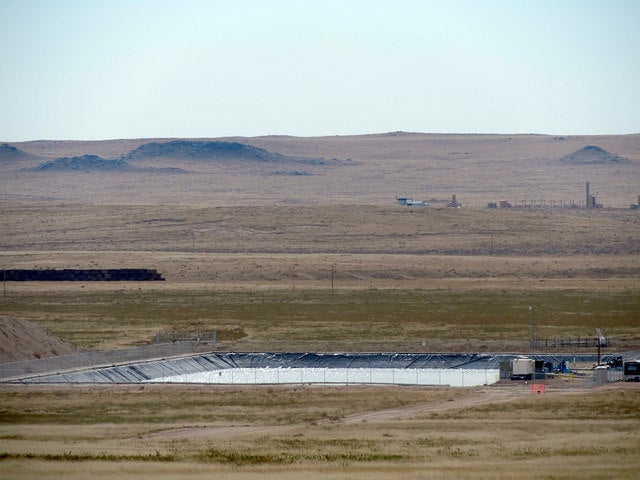
Oil and gas companies are looking for new ways to reuse salty, toxic wastewater — including crop irrigation.
A recent publication of the Air and Waste Management Association (AMWA) contained a number of articles by academia and industry experts about the many challenges of managing the nearly 900 billion gallons of wastewater (also called produced water) generated every year by oil and gas production. This wastewater is not only very salty but also contains a number of chemicals (many toxic) and potentially radioactive material.
The majority of this wastewater is disposed in deep underground wells to minimize the risks of it coming into contact with humans or the environment (though leaks and spills at the surface are still a big concern). But in hope of lowering costs, in recent years industry has been trending toward finding other ways to either dispose of or recycle this waste – in part because demand for water resources is increasing in drought prone areas and because disposal wells have been linked to a rise in earthquakes.
The articles in AWMA’s magazine suggest that recycling oilfield wastewater to complete new wells is the most viable alternative to traditional disposal methods. Definitely more viable than reusing this water in other ways outside oil and gas operations. Read More












